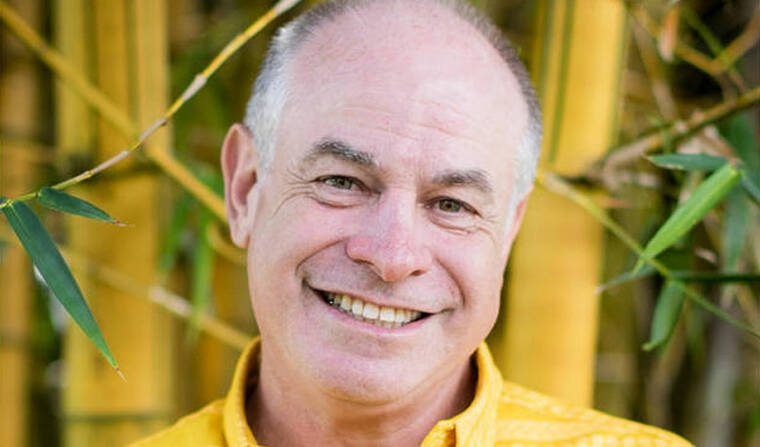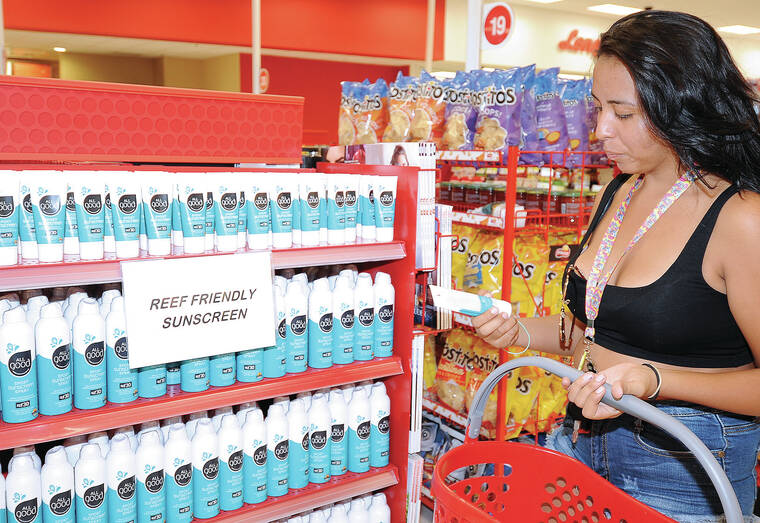Sunscreens containing any active ingredient other than titanium dioxide and zinc oxide will be banned from sale on Hawaii Island starting Dec. 1, under a bill Mayor Mitch Roth let become law Friday without his signature.
“Although Mayor Roth returned Bill 167 unsigned, it is now ordinance thanks to significant involvement and support from our community and partner organizations,” North Kona Councilman Holeka Inaba, who sponsored the bill with Kona Councilwoman Rebecca Villegas, said Monday. “This is truly a big step in the right direction for our island home.”
Environmentalists and other groups have been pushing for a ban of certain sunscreen ingredients for years, citing evidence that the chemicals inhibit coral growth and degrade the integrity of the reefs.
The new law, Ordinance 22-81, will, however, allow people to use other sunscreens with a prescription from a licensed health-care provider.
“Our administration supports the intent of Bill 167, as we do with all legislation that aims to further a sustainable Hawaii Island. However, we do have concerns over the enforcement piece of this particular bill – which is why we didn’t sign it,” Roth said in an emailed response. “We look forward to working with the community and Council in fine-tuning it as we allow it to become law and put it into everyday practice.”
The new county law follows a state law that went into effect in Jan. 1, 2021. That law prohibits the sale statewide of any sunscreen containing oxybenzone or octinoxate without a prescription.
Villegas said sunscreen manufacturers circumvented the ban on specific chemicals by switching to slightly different — but no less harmful — substances, and a ban on all chemicals except for a few specific ones closes that loophole. For example, a popular sunscreen on local store shelves contains avobenzone rather than oxybenzone and carries a sticker touting, “Reef Safe — Made without oxybenzone and octinoxate.”
“I’m deeply grateful for the community’s support and passionate advocacy to pass Bill 167,” Villegas said. “While I’m perplexed by the mayor’s decision to return the bill unsigned, I’m grateful it will still become an ordinance. Legislation like this authenticates our county’s commitment to sustainable practices that protect our precious natural resources.”
The prohibition is to be enforced by the Department of Environmental Management, which has the authority to formulate rules and also to confiscate and destroy any banned products.
The county law imposes a $1,000 fine for violators, with any revenues to be used by the Department of Parks and Recreation for mineral sunscreen dispensers, educational materials and related purposes.
The bill had passed the council on 6-2 votes over two readings, with Puna Councilwoman Ashley Kierkiewicz, Hilo Councilwoman Sue Lee Loy and Kohala Councilman Tim Richards submitting the no votes during the hearings they weren’t absent.
Opponents said the National Academy of Sciences currently is conducting a study of the research on the topic, and they’d like to see more definitive proof before committing to a ban. The study is expected to be completed within the year.





